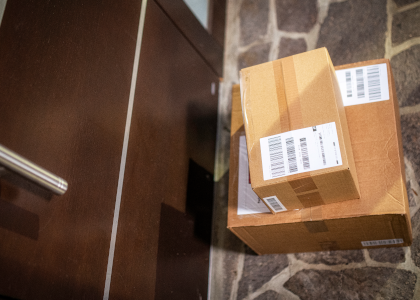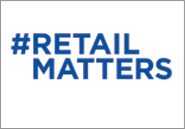Retail is the largest private sector employer in British Columbia.
Find out why #RetailMatters to British Columbia and #VoteRetail on October 24, 2020.
8.5%
of British Columbia’s workforce works in Retail. That’s 285,000 local jobs.
21,000+
storefronts in British Columbia
63%
of retailers are small businesses
$11 Billion
in total annual salaries paid
$28.88/HR
British Columbia’s average hourly compensation in retail
$56 Billion
in Core Retail Sales
Source: Stats Canada
Why British Columbia Retail Matters

The COVID-19 pandemic has reminded every British Columbian of the importance of retail stores in their everyday lives. Whether your goods are bought in store, picked up at curbside or delivered to your home, British Columbians source their daily necessities from retail stores. Grocery and pharmacy workers – and many others – are essential to ensuring our supply of goods remains strong.
When you talk to your local candidates, RCC encourages you to share your experiences and the needs of B.C.’s retail industry.
Please also let them know that you are part of B.C.’s largest private employment sector and that retail also has a significant impact on the success of several other industries such as transportation, construction, property management, information technology and financial services.
Here are some ideas that you can share with your candidates while spreading the word about retail:
- Nearly one in every twelve jobs in B.C. is in retail.
- Two-thirds of all retailers are small businesses.
- Retail in B.C. pays over $11 billion annually in payroll.
Every election provides us with the ability to shape our government and help to ensure that future members of the Legislative Assembly understand the role that retail plays in the lives and economy of B.C.
Where the Parties Stand

Retail Council of Canada sent a questionnaire to the leading political parties addressing the key issues affecting retail in the province.
Retail Survey Questions
Provincial Sales Tax
- Will your party commit to require and enforce the registration, reporting and remittance of sales into British Columbia of entities based elsewhere selling into British Columbia?
- Would you support the replacement of the exemption for children’s clothing and footwear with an increase in the B.C. Family Bonus program to offset the end of the exemption?
- Would your party support investigation of the replacement the current system (for the collection of consumers information at point-of-purchase) with one that would be easier to administer and offer better protection of our customers’ personal information, and to reduce personal contact during and after the COVID-19 pandemic?
- Would your party support the introduction of a refundable tax credit to provide assistance to retailers and other businesses in order to pay for increased safety measures in light of changes brought around by the COVID-19 pandemic?
Labour legislation
- Do you support an approach to labour legislation that provides balance, consistency and fairness for both business and labour?
- Once the 2021 minimum wage increase has taken place, would you support tying the annual increase in the minimum wage to the annual increase in the Consumer Price Index for British Columbia going forward?
- Do you support the provision of a minimum of six months’ notice of an increase in the minimum wage?
Environment and climate change
- Will your party commit to maintain the principle of 100% producer control of B.C.’s extended producer responsibility system?
- Will you work toward harmonization of British Columbia’s Recycling Regulation and stewardship system with those operated by other provinces, most notably Alberta, Saskatchewan and Manitoba?
- Will you commit to partnering with business to consolidate stewardship organizations in an effort to ease operational complexity?
- Will you commit to levelling the playing field between B.C. businesses and sellers based elsewhere either through better enforcement of the obligation to participate, or by altering the definition of producer to include on-line sales platforms and/or shippers?
- Would you support the creation of a requirement to appropriately recycle industrial, commercial and institutional waste instead of creating a costly new program to manage commercial waste?
British Columbia Key Retail Issues
Ensure fairness and efficiency in taxation

For retailers and most British Columbia businesses, the existing B.C. Provincial Sales Tax system is out-dated, inefficient and reduces the ability of B.C. retailers to compete with foreign sellers. Some record-keeping requirements have been especially burdensome during the COVID-19 pandemic such as curbside pickup and delivery operations, which are made more difficult by requirements to see identification, collect and record customer information and obtain customer signatures for some tax exemptions.
British Columbia’s retailers compete with entities all around the world. Entities based elsewhere, and consumers purchasing from those entities, are avoiding taxes and eco-fees. This creates an unjustifiable inequity for B.C.’s retailers – who employ our family, friends and neighbours. This is simply unfair to B.C. retailers and must be fixed.
Recommendations
Ensure a level playing field for B.C. retailers by making sure that all entities from outside B.C. are required to register for, report on and remit PST and eco-fees. The government has tools available including obligating online sales platforms and shipping companies. Modernize the collection of information required from consumers to make it easier to collect and maintain what is often personal or sensitive customer information.
Maintain predictable labour costs

A large component of operating a retail business is the cost of labour. Predictability of labour costs is key. Linking minimum wage increases to a predictable model and providing adequate notice of any increases further in advance will allow retailers to better manage those costs.
Our workers’ compensation system is premised on the historic compromise between employers and labour. Changes in the last two decades have led to a ‘seesaw’ effect where the balance tips from labour to business and back. Businesses needs predictability and an approach that balances reasonable costs and operational impacts while ensuring necessary protections for workers.
Recommendations
Link the minimum wage to the Consumer Price Index – an easily recognized measure of inflation, and provide at least six months notice of a minimum wage change to allow retailers to plan for cost increases and set the price of goods appropriately to cover the costs.
Ensuring that the workers’ compensation system is stable and reducing the ‘see-saw’ effects when the government changes will help both protect workers and control costs.
Prevent dramatic increases in costs and lessen operational impacts of environmental programs

Retailers are proud of, and committed to improving, B.C.’s extended producer responsibility system, which is unique in Canada, in that it is both 100% producer-paid and 100% producer-controlled. The system results in an annual cost of over $400 million to British Columbia’s retailers. These costs must be passed onto consumers in the form of ‘eco-fees’ or embedded within the cost of consumer goods.
There are currently 22 approved stewardship plans under British Columbia’s Recycling Regulation operated by 12 service organizations. Each of these operates under different parameters, such as requiring a different legal agency agreement, different sales reporting requirements, different filing dates and deadlines, different remittance regimes as well as different verification and audit procedures. These agencies are creating consumer cost and operational cost burdens for producers.
In addition, many of these programs overlap with each other and operate in the same space. For example, there are four packaging programs and nine electronics programs. These issues are becoming more prominent as these programs expand to include more products such as mattresses, new electronic products and more hazardous products.
Recommendations
Harmonize B.C.’s programs with other jurisdictions. Consolidate B.C.’s extended producer programs which would provide more efficiency and better environmental outcomes. Effective environmental results produced by an efficient system is everyone’s goal. Harmonization will make it easier for retailers to report and remit – and importantly, make it easier for consumers to ensure their purchases are appropriately recycled.
The goal of extended producer responsibility is to move the cost from local government taxpayers to consumers. Often these are the same people. Accordingly, it is important that such a change happen only where a more efficient and effective collection system is possible.
Get Involved

1. Find your candidates
Learn about your local candidates by visiting the party websites:
Use the Elections B.C. tool to determine your constituency.
2. Print your sign
Show your pride in retail by posting a photo of your retail staff holding a #RetailMatters sign or a photo of your store.

3. Tell candidates #RetailMatters
Use these links to send parties your staff photos or customized tweets.
- B.C Liberal Party: @bcliberals
- B.C. New Democratic Party: @bcndp
- B.C. Green Party: @BCGreens
Contributing to political parties – what you need to know
Contributing to a campaign can be an effective way to build relationships with candidates in your riding.
Make sure that you understand the rules before lending your support to a provincial political party and its campaign.
Who can contribute?
Donors must be both (a) a resident of British Columbia, and, (b) a Canadian citizen or permanent resident. Only individuals may contribute: corporations, unions and organizations are both prohibited from making donations, and, from reimbursing individuals for making political contributions.
What is the contribution limit?
In 2020, the donation limit is $1,253.15 in B.C.
How can a contribution be made?
The contribution is made to either a registered political party or the party’s electoral district association.
Who can receive contributions?
Political contributions can be in the form of money, goods or services. All contributions over $250 must be disclosed in a registered political party’s or candidate’s audited financial returns.
View more information on rules surrounding financial contributions
Voting
- Voters may request a mail ballot from Elections B.C. You can also view your District Electoral Offices here.
- Election day, Saturday, October 24, polls are open from 8:00 a.m. to 8:00 p.m.
- Advance voting occurs from Friday, October 16 through Wednesday, October 21 from 8:00 a.m. to 8:00 p.m.
- You may also vote at any time during the election period at any Elections British Columbia office.
Time off to vote:
Voters are entitled to four consecutive hours free from work to vote during advance voting or on General Voting Day. Voting hours during advance voting are 8 a.m. to 8 p.m. local time and on General Voting Day are 8 a.m. to 8 p.m. Pacific time.
This does not necessarily mean four hours off work. It means that there must be a four-hour period free from work during voting hours. Time off may be at the beginning or end of an employee’s shift, or unnecessary if normal working hours already provide enough time free from work to vote. For example, if a shift ends at 4 p.m., or does not begin until noon, the employee is not entitled to any time off for voting purposes. Employers can decide when their employees can take time off to vote.
Contact Us

For questions or to find out more, contact Greg Wilson, Director, Government Relations (BC) gwilson@retailcouncil.org or 604-730-5254.
